Tehran Mayor Pays Extra Salaries Amid His Presidential Run
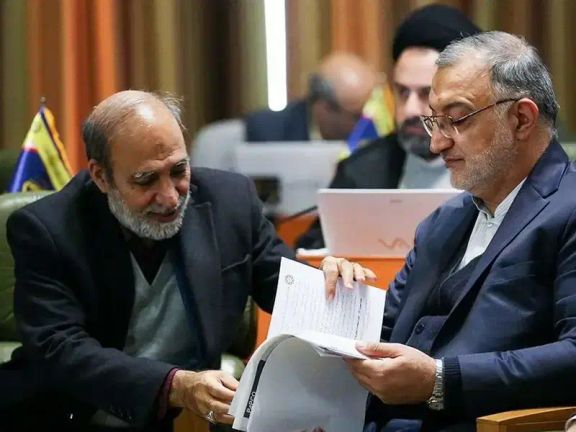
Tehran Municipality has disbursed 250 million rials ($400) for "arrears salaries" of each employee as presidential candidate Alireza Zakani, the city mayor, bids to win the public's support.

Tehran Municipality has disbursed 250 million rials ($400) for "arrears salaries" of each employee as presidential candidate Alireza Zakani, the city mayor, bids to win the public's support.
Deputy mayor Majid Bagheri praised the payment as "unprecedented support for colleagues' livelihood," during the intense campaigning by presidential candidates for the snap election on June 28, triggered by the unexpected death of President Ebrahim Raisi.
However the action is seen simply as a financial reward to sway votes for the June 28 presidential election.
In reality, it will make little difference to the 140,000 employees who will receive $400 at a time when one third or more of Iranians now live below the poverty line. But the amount is substantial for most employees who make around $200 a month.
Bagheri emphasized the historic nature of the piecemeal salary reform within the municipality, marking it as a first in its history while many in the city are facing record levels of unemployment.
Zakani earlier sparked controversy by appointing his deputy for financial affairs, Lotfollah Forouzandeh, as the head of his campaign team.
Despite such moves and various promises from the six contenders in the race, voter turnout is expected to remain low, mirroring the dismal participation seen in the last parliamentary elections in March.
The public's growing skepticism towards political promises and the effectiveness of such pre-election strategies are telling of the broader discontent and political fatigue among the electorate.
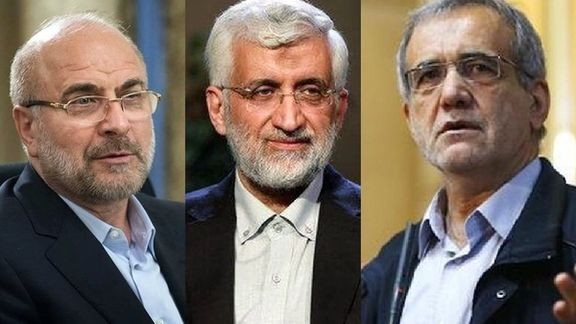
A week after the start of the election campaign in Iran, almost no one speaks about three of the five hardliner candidates: Amir Hossein Ghazizadeh Hashemi, Tehran Mayor Alireza Zakani, and former Justice Minister Mostafa Pourmohammadi.
Nearly all of the official and unofficial polls are about the election chances of the other three: Majles Speaker Mohammad Bagher Ghalibaf, Member of Parliament Massoud Pezeshkian and former nuclear negotiator Saeed Jalili.
Hadline lawmaker Amir Hossein Sabeti mentioned the results of a poll last week by an undisclosed government agency in a post on the social media platform X. This poll has shown that ultraconservative Jalili has a 23 percent chance to get elected as Iran's next President while Ghalibaf has a 21 percent and Pezeshkian has a 13 percent chance.
Meanwhile, a poll conducted by Iranian journalist Maryam Shokrani on her Instagram page, among a statistical sample of 3,374 users, some 88 percent of Instagram users have said that they are not going to vote in the presidential election.
Another poll she conducted on her X account with a sample of 6,433 users, some 73.99 percent have said they are not going to vote. These results are close to the figure that has leaked from the incumbent government, a legacy of former President Ebrahim Raisi's administration which puts the number of those who say they are not willing to vote at a sharp 80 percent.
Government polling agencies in Iran include those that belong to the Culture Ministry, Intelligence Ministry, Interior Ministry, the state television and major government-owned news agencies such as IRNA and ISNA. Results are usually confidential and not released to the public unless politically expedient.
Some social media users have questioned the validity of the poll about the chances of the three candidates. One wrote a long series of 16 posts on X to prove that between Jalili and Ghalibaf, the former has a chance of more than 80 percent to be the forerunner.
The Iranian press have their own ways of assessing the candidates' chances while being cautious about revealing what they know. The government has been arresting journalists and harassing the media, pressuring them to report a welcoming but otherwise uneventful election. Authorities seem wary of any reports that convey a sense of competition or the extent of support for individual candidates.
At the same time, the smear campaigns previously seen in Iranian media during past elections have now shifted to social media. Users, writing under aliases to avoid repression, are engaging in these attacks.
Meanwhile, the IRGC that has been a key player in the controversial elections since 2005, sent its spokesperson out last week to insist that the Revolutionary Guard will not interfere in the election in any way. Ramazan Sharif said that the IRGC will not take part in any activity in support or against any candidate.
However, none of those figures and statements can be relied upon. The Iranian media and politicians have proven that they have no notion of accuracy when using figures. As an example, ultraconservative candidate Jalili has said that "he is going to compensate several centuries of Iran's backwardness in a matter of a few years." Meanwhile, over the past years, he and other hardliners have regularly praised the Islamic Republic for turning Iran into an advanced country.
Social media user Darius who quoted the statement, said "One who thinks several centuries of backwardness can be compensated for in a few years, is an disillusioned and errant individual who needs to be hospitalized.

Iranians living in Sweden gathered outside the Ministry of Foreign Affairs on Sunday to protest the release of an Iranian official serving a life sentence for war crimes.
Hamid Nouri was in prison for his involvement in the 1988 massacre of thousands of Iranian political prisoners, and was released over the weekend in exchange for two Swedish citizens, one of whom was an EU diplomat accused of spying for Isreal.
The protest also highlighted the case of Ahmadreza Jalali, an Iranian-Swede who was left out of the prisoner swap and remains on death row in Iran.
Among the speakers of the rally was Jalili’s wife Vida Mehrannia who criticized Swedish Prime Minister Ulf Kristersson for agreeing to the exchange which only emboldens Iran's policy of hostage taking.
"The Swedish government has claimed that the Islamic Republic is not willing to agree to exchange Ahmadreza Jalali. How, then, was the Swedish government prepared to release a terrorist?" she questioned.
The protest in Stockholm is part of a larger wave of dissent, with many fearing that such exchanges may embolden the Iranian government in its use of hostage-taking as a diplomatic tool.
It is unknown how many dual-nationals are being held in Iran, but earlier this month it was revealed that a British-Iranian woman was the latest to have been found being held in Evin Prison on trumped up charges.
Nasrin Roshan was arrested on her way home to Britain accused of protesting against the government abroad, sentenced to three years in prison.
Just last year, the US exchanged five US-Iranians for the release of $6bn of frozen Iranian funds held in South Korea, further legitimizing Iran's policy of hostage-taking.
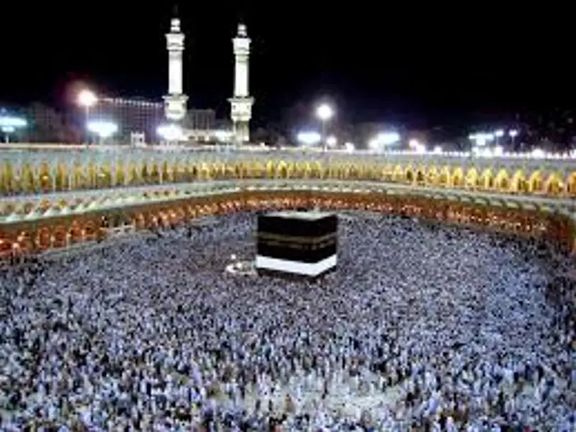
Iran's Red Crescent Society has confirmed the deaths of seven Iranians during this year's Hajj pilgrimage in Mecca due to “heatstroke” and “pre-existing health conditions”.
This year's total death toll reached 19 with temperatures forecast to reach a peak of 47 degrees.
The intense heat has had a significant impact, especially during the critical Hajj ritual of 'stoning the Devil', a period marked by several of the reported deaths.
Each year, the Hajj pilgrimage attracts approximately 1.8 million Muslims to the holy city of Mecca in Saudi Arabia.
According to Saudi's health ministry spokesman, Mohammed Al-Abdulaali, more than 2,760 pilgrims suffered from sunstroke and heat stress on Sunday alone.
In response to the annual deaths which plague the pilgrimage, Saudi authorities have introduced a variety of precautions including climate-controlled facilities and comprehensive medical support to address the health risks posed by the heat.
Last year, deaths reached as many as 240 with temperatures around 48 degrees.
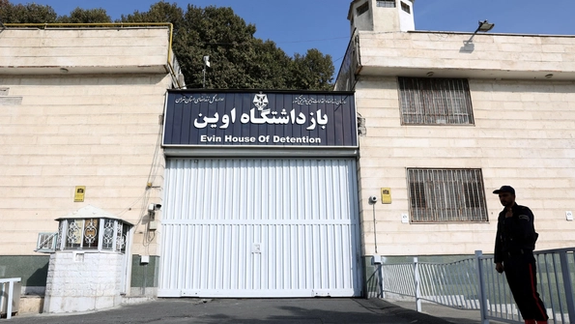
Inmates in Ward Four of Tehran’s notorious Evin Prison are suffering from severe overcrowding, abysmal hygiene, and hunger, according to a human rights monitoring group.
The US-based Human Rights Activists News Agency (HRANA) has detailed the conditions in which these prisoners live, most of whom are political detainees, in a report published on Friday.
Here is an in-depth report on the prison, compiling data from previous reports and HRANA's findings on Ward 4.
Evin Prison's Profile
The Evin prison is Iran's largest facility for detained political prisoners, some charged with crimes related to national security. Over the years, it has garnered international attention and criticism for its wrongful treatment of prisoners and human rights violations. In response to allegations of abuse and misconduct, both the US and the EU have imposed sanctions on Evin prison, underscoring the need for reforms within Iran's penal system.
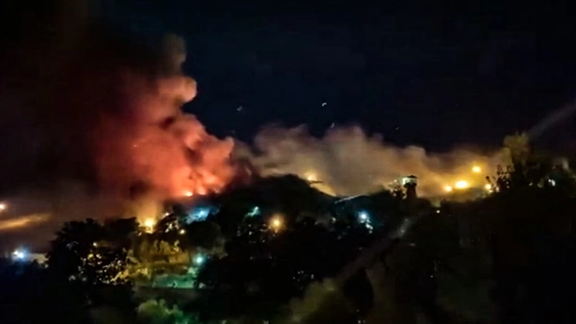
An incident that intensified attention, particularly, was a fire that broke out in Evin prison in October 2022 amid the nationwide Woman Life Freedom protests. Official records indicate eight prisoner fatalities and 61 injuries.
While Iranian authorities attributed the fire to prisoners, evidence collected by Amnesty International raised significant concerns that the authorities exploited the situation to justify a violent crackdown on prisoners under the pretext of firefighting and preventing escapes.
Another notable event occurred in 2021 when a hacktivist group breached Evin prison's security cameras. The footage obtained by Edalat-e Ali from these hacked CCTV cameras revealed numerous abuses, including overcrowding, inhumane cell conditions, and instances of guards and other inmates assaulting prisoners.
Overcrowding and Hygiene Concerns
Evin prison has four halls in its ward four. Originally designed to house 120 individuals, halls 3 and 4 now find themselves overcrowded with more than 300 inmates. This overcrowding has led to cramped sleeping arrangements and heightened hygiene concerns. With inadequate space and minimal facilities, many prisoners are forced to sleep on the floor, resulting in an alarming increase in the prevalence of bed bugs and other diseases within the prison environment.
In May, Mehdi Mahmoudian, a political activist with over eleven arrests and eight years of imprisonment, reported on X that Taleghani Hospital in Tehran ceased admitting dialysis patients from Evin due to bedbug contamination.
The activist stated that the hospital provided a sample canister of bedbugs to Evin's medical department head as evidence.
Earlier, Zia Nabavi, a student activist and political detainee, described the harsh effects of the infestation, such as sleep deprivation, before being transferred to solitary confinement.
Prison Store and Food Quality
Furthermore, the quality of prison food has come under scrutiny, with reports of physical ailments among inmates due to poor nutrition.
Many prisoners have experienced weight loss, joint pain, and difficulties concentrating, attributing these health issues to the substandard quality of the government-provided meals.
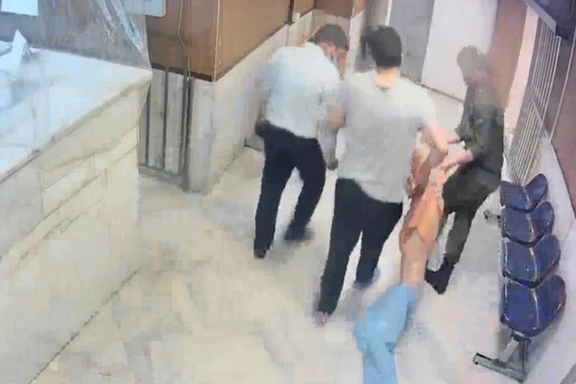
Additionally, the exorbitant prices at the prison store have made it difficult for some inmates to afford basic necessities, exacerbating their financial strain.
Recently, reports emerged that Mohammad Nourizad, a prominent writer, filmmaker, and political detainee, was transferred to solitary confinement following his protest against the escalating food prices in prison, as disclosed by his wife.
Fatemeh Maleki, in an audio clip circulating on social media, revealed that Nourizad's objections to the rising prison food expenses in the past two months prompted his solitary confinement.
Drug Related Issues
According to HRANA's report, the ongoing prevalence of drugs poses a substantial threat to the welfare of the incarcerated community.
This aligns with the statement made in May by Iran's anti-narcotics police chief, who asserted that roughly half of the country's prisoners are implicated in drug-related activities.
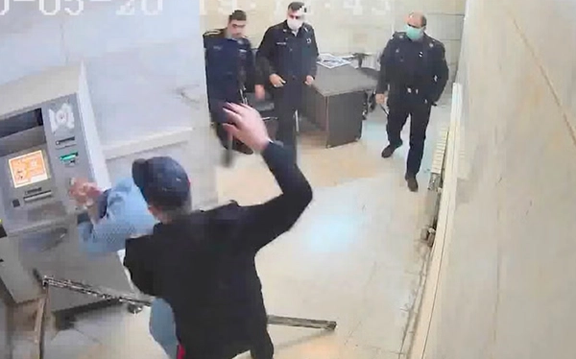
In 2020, Iran Wire reported the distribution of inexpensive, mass-produced narcotics within prisons. Activists like Leila Hosseinzadeh, now released, highlighted the prevalent practice of systematically drugging prisoners. Describing an incident, she recounted how, following a brawl between two inmates, one was forcibly administered a pill to silence them for several days.
Living Conditions and Protests
The dire living conditions within ward four have prompted protests among the incarcerated population. Despite repeated appeals and requests for intervention, prison officials have thus far neglected to address these grievances adequately. The overcrowding and unsanitary living conditions have significantly impacted the physical and mental well-being of the inmates, fueling their frustration and dissatisfaction.
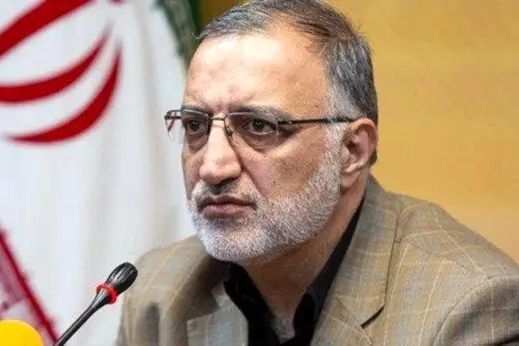
Iran’s former Foreign Minister has responded to criticism of allegations of secrecy surrounding the 2015 nuclear deal amid the presidential race war of words.
Presidential candidate Alireza Zakani accused Mohammad Javad Zarif, along with former President Hassan Rouhani and former Parliament Speaker Ali Larijani, of “clandestinely” handling the Joint Comprehensive Plan of Action (JCPOA) document.
Zakani claimed that the trio withheld the JCPOA from other vital Iranian officials, including then-Secretary of the Supreme National Security Council, Admiral Ali Shamkhani, and the special advisor to the Supreme Leader, Ali Akbar Velayati, under "utmost confidentiality."
The response from Zarif's office denounced Zakani's claims as “baseless”, highlighting that the JCPOA text and its Persian translation were publicly posted on the Ministry of Foreign Affairs' official website immediately after the deal's conclusion, debunking the notion of secrecy.
Furthermore, Zarif’s office also defended the JCPOA's “legitimacy”, noting its ratification by various Iranian governmental bodies and its alignment with the will of the Islamic regime, as recognized by the Supreme Leader.
The Joint Comprehensive Plan of Action (JCPOA), commonly referred to as the Iran nuclear deal, was a landmark agreement reached in July 2015 between Iran and the P5+1 group, comprising the United States, United Kingdom, France, Russia, China, and Germany.
The core objective of the JCPOA was to curb Iran's nuclear capabilities to ensure they remained strictly for peaceful purposes, in exchange for lifting economic sanctions that had impacted Iran's economy. Under the agreement, Iran agreed to reduce its stockpile of uranium, limit its level of uranium enrichment, and decrease the number of its centrifuges in return for relief from sanctions.
However, the US withdrew from the accord in 2018 under President Donald Trump, which led to the re-imposition of US sanctions. Since then, Iran's uranium enrichment has reached levels which the UN's nuclear chief says allows Iran to be "weeks not months" away from a nuclear weapon.